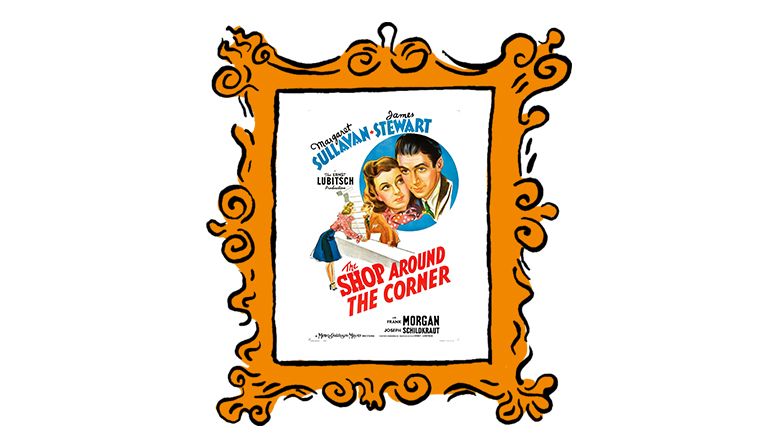With the festive season in something close to full swing, we’re going to do something different with this week’s edition—and also next week’s edition—of The Culture. Instead of the usual lead article and separate cultural recommendations, we cast around Prospect’s family members and friends to ask them what books, albums, films, etc. they are turning to in the wintry, Christmassy weeks ahead. Here are their responses:
Dislocation
Much good poetry was written in Russia during the Second World War—complex and subtle, supportive of the war effort, but far from being mere propaganda. Good poetry is being written now too, but this time it is directed against the war. One bilingual anthology, Disbelief, was published in early 2023; contrasting the two wars, Tatiana Voltskaya wrote, “We’ll get what we deserve, and more. / Unholy war has tarnished Grandad’s medals.” A second, larger anthology, Dislocation, also edited by the Russian-American poet Julia Nemirovskaya, has come out only recently. Here are a few lines by Zhenya Berkovich, translated by Anna Krushelnitskaya, from ‘Lot’:
…And we did understand
the main rule was—not to look back.
Except all around us it was such unbearable hell that she must have gotten
spooked.
She forgot, and
she looked.
Berkovich is a celebrated theatre director and poet, and the recipient of the 2023 Anna Politkovskaya Prize. She is now serving a six-year prison sentence following a fabricated, politically motivated case.
Robert Chandler, critic
The Shop Around the Corner
The Shop Around the Corner (1940) is a delight that often gets overshadowed by Jimmy Stewart’s other Christmas classic, It’s a Wonderful Life. I first watched it on a snowy day with a friend, in a little school music room, and we were both captivated. Set in wintry Budapest, it’s a story about Stewart’s Alfred Kralik and Klara Novak (Margaret Sullavan), who unknowingly fall in love through anonymous letters while working together in a tense retail environment. The film, which inspired You’ve Got Mail, beautifully captures the loneliness many feel around the holidays—and unexpected love. The chemistry between Stewart and Sullavan makes this sweet, funny and poignant film everything a Christmas movie should be.
Imaan Irfan, editorial assistant
Orley Farm
Long novels are perfect for the Christmas holidays; I tend to read them more quickly and attentively than short ones. I’m late to the party with Anthony Trollope, having stupidly decried him for what he is not (Dickens, Eliot, Thackeray), rather than bothering to notice and enjoy what he is. I would most recommend Orley Farm, which he and his contemporaries thought his best work. There is a strange relief in jettisoning the nervous energy and ringleted nymphets of Dickens and settling into Trollope’s grippingly dogged account of a lawsuit brought against a respectable middle-aged woman. Chronicling the lives and loves of middle and old age is one of the novel’s great achievements, as its moral and legal complexity, and its concession that morals and law are not easy bedfellows. Or try The Fixed Period, his curious outing into science-fiction—a tale of legally enforced euthanasia that has never been more relevant.
Oliver Soden, critic
The Mousehole Cat
A lot of us will be spending Christmas with small children, so my recommendation is something that, hopefully, the whole family can enjoy—and might cut through the endless Bluey and/or (god forbid) Cocomelon. The Mousehole Cat, about a Cornish fishing village being battered by a terrible storm, and one local fisherman’s brave journey to get a catch for the starving locals, was a book first. Then, in 1994, it was made into an animated film, which is 30 minutes long and available on YouTube. It’s cosy, beautifully drawn and will make you glad to be tucked up warm inside instead of battling the winter ocean with your trusty cat.
Imogen West-Knights, TV critic
The Left Hand of Darkness
Imagine a world so cold that “a common table implement is a little device with which you crack the ice that has formed on your drink between drafts”. This is Gethen or Winter, the icy planet where Ursula K Le Guin sets The Left Hand of Darkness. Snow, ice, sleet—wondrously, specifically described—are the rich background, rather than the main point, of Le Guin’s thought experiment in novel form. Told via the travelogue of Genly Ai, an envoy from Earth sent to Gethen, through his eyes we get know this place where humans don’t have a fixed sex. Le Guin wonders aloud: how would a world without gender be?
Alona Ferber, senior editor
‘Hallelujah!’
Quincy Jones, who died this year, was a musical genius, shaping the sounds of legends like Michael Jackson, Count Basie and Frank Sinatra. This Christmas, I'll be listening to his music, including “Hallelujah!” from Handel’s Messiah: A Soulful Celebration. This Grammy-winning masterpiece, arranged by Mervyn Warren and conducted by Quincy, is a stunning reimagining of Handel’s classic, blending gospel, R&B and jazz with joyful energy. It’s a soulful reminder of Quincy’s unparalleled brilliance and the legacy he leaves behind.
Jo Murray, head of engagement
Wintering
One of the joys of winter is to retreat from the cold and into the warmth of the indoors. In Wintering, Katherine May invites us to approach life’s hardships—or “winters”—in this same way. Through lyrical prose, May explores how we can draw from nature’s example to embrace rest and stillness during challenging times, using them as periods of renewal and opportunities to slow down, reflect and emerge stronger and more resilient when spring returns.
Lucy Hicks Beach, critic
David Lean’s Great Expectations
After the turkey, the Dickens movie. My family favourite back in the 1960s was Great Expectations (1946) with John Mills as Pip, Jean Simmons as Estella and Finlay Currie as a terrifying Magwitch. David Copperfield (1969) with Ralph Richardson, Larry Olivier and Susan Hampshire came a close second. The BBC understood in those days there was no difference between literary tradition and popular culture.
Lionel Barber, contributing editor
Treasure Island at the Lyceum
If you’re looking for a festive family outing, I suggest the production of Treasure Island at Edinburgh’s Lyceum Theatre, a new adaptation by Duncan McLean that transplants the swashbuckling adventures of Jim Hawkins to the Orkney islands. Expect sword fights, sea shanties and a puffin in the place of a parrot in this anarchic take on Robert Louis Stevenson’s 1883 novel. Until 4th January.
Cal Flyn, critic
The Box of Delights
How many children read John Masefield’s 1927 The Box of Delights (or its predecessor, The Midnight Folk) nowadays? But with their wicked governess, talking animals, orphans, time-tunnels, ancient magic and—in Abner Brown—a villain as enduring as Voldemort, there are lineaments of the greatest post-war children’s books. The BBC is re-running its adaptation of Box of Delights from 1984, and I want to hunker down for a white Christmas in Seekings with young Kay Harker and be as transported as I was when I watched it 40 years ago.
Lucy Lethbridge, critic
Trading Places
Trading Places (1983) is the perfect Christmas movie. It is arguably a perfect movie, full stop. From the opening sequence of scenes from Philadelphia, set to the strains of The Marriage of Figaro, we are drawn into the age-old fable of a role switch, as Louis Winthorpe III (Dan Aykroyd), a high-flying commodities broker, swaps lives with street hustler Billy Ray Valentine (Eddie Murphy, never better). It is all part of a cruel “scientific” experiment conducted by Winthorpe’s bosses, Randolph and Mortimer Duke (Ralph Bellamy and Don Ameche), which leaves him down and out and Billy Ray baffled to find himself running a big brokerage firm and living in an elegant house, with his own butler, Coleman (Denholm Elliot). Trading Places rivals Withnail and I for quotable lines (“Pork bellies. I knew it!”; “It was a stone groove, my man!”; “It’s not luck”; “Beef jerky time!”). Peerless festive fun.
Matthew d’Ancona, contributing editor
‘Snow’
If the world turns white here this winter, I’ll be thinking of John Davidson’s little rhyming essay ‘Snow’ (1909). It exemplifies what Virginia Woolf called Davidson’s “curious power of describing the quality of matter”. The poet sees a flake “martyred underneath a microscope” and wonders at how its six-angled symmetry of “prongs and dints” fills up the world with “crystalcraft”, from the city’s “seething sewers” to “the great millennial snows” of the poles.
Jeremy Noel-Tod, critic
La Nativité du Seigneur
“Emotion, sincerity, foremost. The subject: The birth of the lord,” writes the French composer Olivier Messiaen. Nine extraordinary meditations on the story of Christmas interweave elusive concepts such as “Eternal Destiny” with character pieces about the Magi and Shepherds. Full of mystery and fervent wonder, Messiaen’s tonal and rhythmic universe is hypnotic: the middle section of “La Verbe” (“The Word”) is so still as to defy the passing of time. The concluding, thrilling movement, “God among us”, often ends the broadcast of Nine Lessons and Carols from King’s College, and I can’t resist recommending a very personal favourite: Richard Gowers’s recording made on that chapel’s organ.
Mishka Rushdie Momen, pianist












